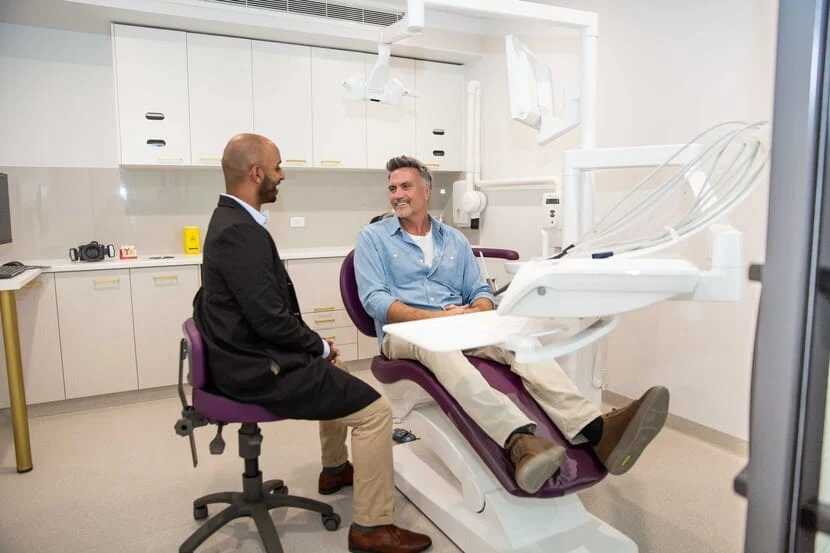Root canal treatment, often a topic of trepidation for many, is a procedure designed to save a tooth that is severely decayed or infected. The fear surrounding this treatment, sometimes rooted in misconceptions and past experiences, can cause significant dental anxiety. However, understanding the emotional journey from anxiety to relief can help demystify the process and shed light on the profound impact this treatment has on patients.
Understanding Root Canal Treatment
A root canal treatment involves removing the infected or damaged pulp from the inside of a tooth, cleaning and disinfecting the area, and then sealing it. This procedure aims to preserve the natural tooth and prevent the need for extraction. Despite its crucial role in maintaining oral health, many people experience significant anxiety at the mere thought of a root canal.
The Cause of Dental Anxiety
The causes of dental anxiety are varied and complex. For some, past negative experiences with dental procedures can leave lasting fears. Others may have a general fear of pain or discomfort associated with dental work. The idea of a root canal—often portrayed as a painful and invasive procedure—can exacerbate these fears.
Misconceptions about root canal treatments contribute to this anxiety. Stories of unbearable pain and lengthy recovery times, often spread through anecdotal accounts, create a fear that may not align with modern dental practices. In reality, advances in technology and techniques have significantly improved the procedure, making it less painful and more effective than ever before.
The Long-Term Emotional Impact
The long-term emotional impact of root canal treatment can be profound. Successfully undergoing the procedure and experiencing relief from pain and infection can lead to increased confidence in dental visits. Patients who previously feared dental procedures may find that their anxiety diminishes with each positive experience.
Moreover, a successful root canal treatment preserves a tooth, preventing the need for more invasive procedures like extractions or implants. This not only protects the integrity of the patient’s smile but also contributes to their overall dental health and self-esteem. Knowing that they have managed a challenging situation effectively can empower patients, reducing future anxiety about dental procedures.
From Anxiety to Relief: The Journey
1. Pre-Treatment Anxiety
The journey often begins with heightened anxiety as patients anticipate the procedure. The fear of the unknown, combined with concerns about pain and discomfort, can be overwhelming. It is crucial for dental professionals to address these fears by providing clear, honest information about what to expect. Discussing the steps of the procedure, pain management options, and recovery expectations can help alleviate some of the anxiety.
2. During the Procedure
During the root canal treatment, patients are often pleasantly surprised to find that their fears were largely unfounded. With modern anesthesia and sedation options, most patients experience little to no pain during the procedure. Dentists use advanced techniques to ensure that the treatment is as comfortable as possible, which can significantly reduce anxiety.
The use of digital imaging and magnification tools has made the procedure more precise, reducing the duration and discomfort. Many patients report that the anticipation of pain is often worse than the actual experience. As the procedure progresses and patients realize their discomfort is being managed effectively, a sense of relief often begins to replace their initial anxiety.
3. Post-Treatment Recovery
The recovery phase is another critical aspect of the emotional journey. After the procedure, some mild discomfort is common, but this is usually manageable with over-the-counter pain relievers. The relief of no longer dealing with the infection or decay in the tooth often outweighs the temporary discomfort. Patients frequently find that the recovery period is far less daunting than they anticipated.
Many people experience a significant emotional shift from anxiety to relief once they see the positive outcomes of the treatment. They may find that their fears were unfounded and that the procedure has improved their overall oral health. This positive experience can transform their perception of dental care and reduce anxiety for future treatments.
The Role of Dental Professionals
Dental professionals play a crucial role in addressing and mitigating dental anxiety. Effective communication, compassionate care, and reassurance are essential in helping patients feel comfortable and informed. By explaining the procedure in detail, discussing pain management options, and providing a supportive environment, dentists can help transform fear into relief.
Additionally, dental professionals can offer strategies for managing anxiety before and during the procedure. Techniques such as relaxation exercises, mindfulness, and even sedation options can be tailored to individual patient needs. By addressing the emotional aspects of dental care, professionals can significantly enhance the overall patient experience.
Root canal treatment, while often feared, is a vital procedure for preserving dental health. The emotional journey from anxiety to relief is a significant part of the patient experience. By understanding the causes of dental anxiety and recognizing the improvements in modern dental practices, patients can approach root canal treatments with greater confidence. The relief and positive outcomes experienced after the procedure can lead to a newfound appreciation for dental care and a reduction in future anxiety. Through compassionate care and effective communication, dental professionals can help patients navigate this journey with less fear and more confidence.
